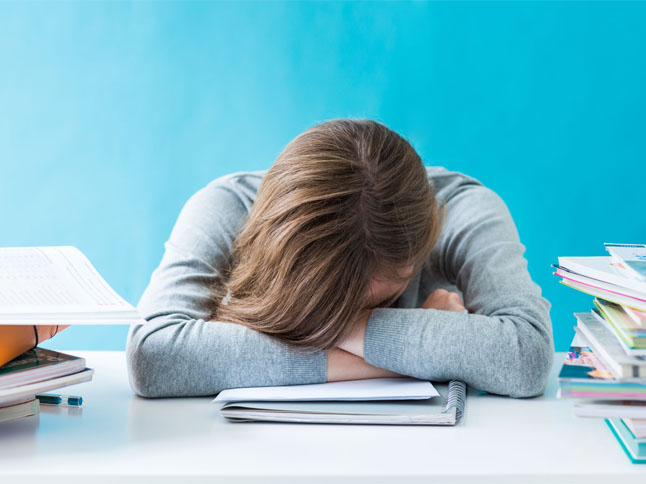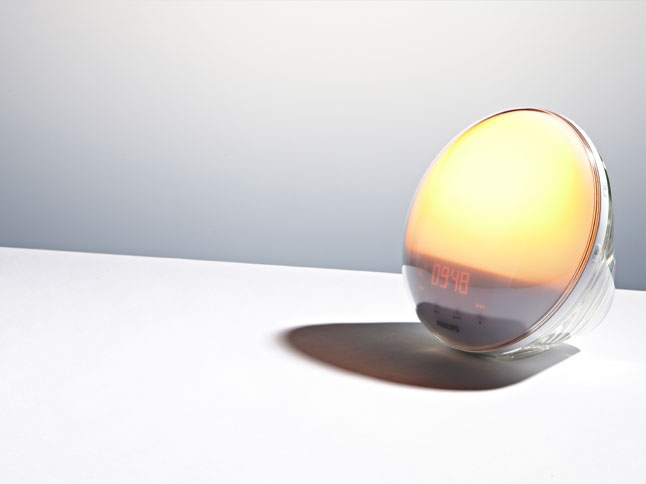Are You Suffering From Sunday-somnia? Here's How To Wake Up Better On Monday Mornings
New studies reveal that one in five of us can't sleep on Sunday nights. So here are a few ways to wake up better and make Monday mornings more bearable

New studies reveal that one in five of us can't sleep on Sunday nights. So here are a few ways to wake up better and make Monday mornings more bearable

We long to be the kind of person to wake up better, the person who doesn’t want to throw our iPhone across the room when the alarm goes off, who can jump out of bed with a spring in our step as the first glimpses of sunlight creep around the curtains. But we're not. New research shows that a quarter of working women are suffering from Sunday-somnia, with half of us clocking up fewer than four hours sleep. That makes Monday mornings quite possibly the least fun thing in the world. According to The Body Clock Guide to Better Health: How to Use Your Body’s Natural Clock to Fight Illness and Achieve Maximum Health (St Martin's Press), only one in ten of us are an ‘up-at-dawn, raring-to-go early bird’ kind of person. But what if you want to wake up better? Well, you can do this…
Light Up
Our bodies are designed to sleep when it’s dark and rise when it’s light. Nothing new there. But our sleeping habits are far removed from what’s ‘natural’. We bathe ourselves in artificial light well into the evening with the TV, smart phones and iPads and we often wake before it’s light and drag our sorry behinds to the office. There are studies that suggest too that the blue light emitted from our smart phones and tablets interferes with our sleep hormones and so disrupt our nights. This is not as nature intended.
Studies show that we greatly benefit from waking up to light so when we have an early sunrise, as we do now, try sleeping with your curtains open. But even in winter when it’s dark outside, it’s still possible to wake with gradual light. Cheat a sunrise with an alarm clock that uses light to rouse you. We love the Philips Wake-up Light, £100. The light gradually increases from dawn reds, through to orange and finally a bright yellow 30-minutes before the time you have set on your alarm. Tests show that the majority of users feel as though they wake up better and find it easier to get out of bed.

Wake Up Slowly
There are five stages to sleep, and not surprisingly the fifth stage is when our body wants to wake itself up. Waking abruptly to an alarm completely ignores what our body wants to do. A deafening alarm clock – or even your smart phone – wakes us up too abruptly, it’s traumatic and disorientating, it causes our heart to jump and adrenaline to surge.
Celebrity news, beauty, fashion advice, and fascinating features, delivered straight to your inbox!
Waking up slowly feels far more natural to our bodies. A sunrise alarm clock will do the job of gradually rousing you.
Create the Right Atmosphere
Our body temperature falls and rises throughout the day; it’s set on a 24-hour cycle. Our peak temperature occurs some time in the late afternoon and it’s at its lowest around 5am.
Temperature is important when it comes to getting a good night's rest and waking pleasantly. After all, a restful sleep is essential for a refreshed morning. Most experts agree on a room temperature between 60-67 degrees Fahrenheit (15- 19 degrees Celsius) – anything over 75 degrees Fahrenheit (23 degrees Celsius) and below 54 degrees Fahrenheit (12 degrees Celsius) is likely to disrupt sleep. They also agree that a cooler temperature leads to a deeper sleep.
Ventilation is really important at night too. We breathe in oxygen and breathe out toxic CO2 – if it’s safe to do so, sleep with your window open so that CO2 can be spirited away and clean oxygen can be returned in its place. Our body goes through a cycle of healing at night where it works to repair the free-radical damage it endures during the day. A healthy supply of oxygen is essential for this process and it will also help to regulate the temperature of your bedroom.
Rise Early
Countless studies confirm that early risers are generally happier, healthier and more productive. A 2008 study by Texas University found that people who identified themselves as ‘morning people’ performed better in tests and in 2008 Harvard biologist Christoph Randler discovered that early risers are more proactive.
Various other studies show that morning people exhibit character traits like optimism, being agreeable, satisfaction and conscientiousness while those of us that would consider ourselves to be Night Owls are more likely to exhibit traits like depression, pessimism and neurosis, despite being linked with creativity and intelligence.

What to Avoid
An unsettled tummy leads to an unsettled night's sleep. Coffee, red wine and chocolate particularly have been scientifically shown to disturb sleep so avoid them before bed. A good rule in general is to eat your main meal earlier in the evening so that your body doesn’t spend valuable hours digesting your food while you sleep, which could be better spent.
Cut out the Noise
Since 2003 the WHO’s Working Group on the Noise Environmental Burden of Disease project has been looking at how noise affects our health and how to minimise the problem. Their research suggests that 2 per cent of Europeans suffer severely disturbed sleep because of noise pollution, and at least 15 per cent suffer severe annoyance. Double-glazing cuts road noise dramatically but there’s very little you can do to insulate yourself from your neighbours domestics. The quickest change you can make – apart from having it out with your neighbours – is to invest in some good earplugs.
The leading destination for fashion, beauty, shopping and finger-on-the-pulse views on the latest issues. Marie Claire's travel content helps you delight in discovering new destinations around the globe, offering a unique – and sometimes unchartered – travel experience. From new hotel openings to the destinations tipped to take over our travel calendars, this iconic name has it covered.